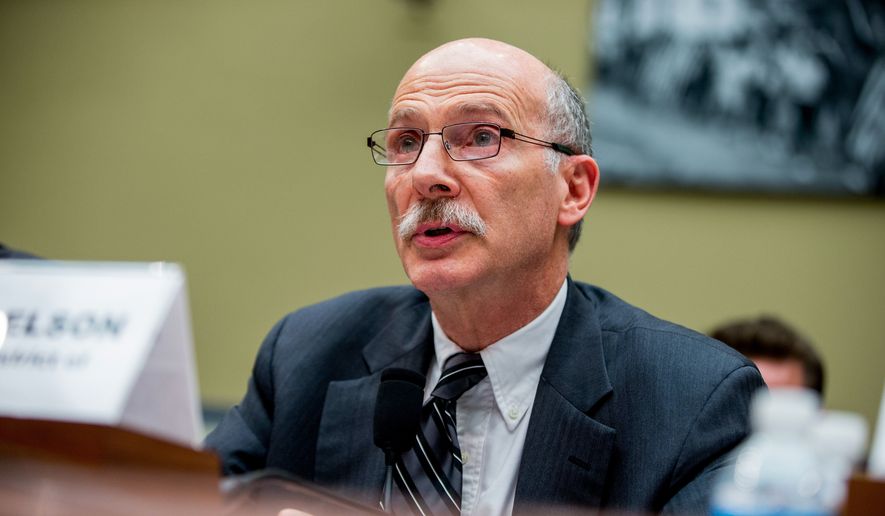The D.C. Council on Tuesday approved the its $15.5 billion budget for fiscal 2020, which includes $47 million from the Washington Convention and Sports Authority that had been the focus of a standoff between lawmakers and the city’s chief financial officer.
Council Chairman Phil Mendelson, at-large Democrat, said Monday that he had reached a deal with Chief Financial Officer Jeffrey S. DeWitt to certify the budget. Mr. DeWitt initially refused to do so, saying that taking funds from the authority would violate the city’s commitment to bondholders who funded the construction of the Walter E. Washington Convention Center.
Mr. Mendelson and Attorney General Karl A. Racine discovered that the authority’s reserves were too high and that there was an additional $47 million in the reserve that was supposed to have been transferred to the city’s general fund. Mr. DeWitt acquiesced to the council’s legal right to determine where the excess revenue would be spent.
Half of the $47 million will go to upgrading the city’s 911 dispatch system and the other half to repairing neglected public housing units.
Council member Vincent Gray, Ward 7 Democrat, attempted to strip a provision from the budget that prohibits the Washington Convention and Sports Authority, or EventsDC, from using any money to purchase the Robert F. Kennedy Memorial Stadium from the federal government, arguing that the provision should be a standalone bill.
Mr. Mendelson said it was “stressed to him that every penny of EventsDC was spoken for.”
“If every dollar is spoken for, then they don’t need any money to buy the football stadium,” the council chairman said.
“I would like to see any decisions about any additional deals that are made between our government and the federal government to come through a community process, that is a more wholesome approach,” said council member Anita Bonds, at-large Democrat who was in favor of keeping the provision to limit EventsDC authority.
Mr. Gray’s amendment voted down 9 to 4.
Meanwhile, council member David Grosso, at-large independent, reintroduced emergency legislation to offer immediate protections for D.C. government workers who participate in the District’s medical marijuana program.
“Recognizing how medical marijuana can help stem the tide of opioid addiction and overdoses that we are facing, the government has sought to improve the program over the past few years, even as some agencies have been putting up barriers to access,” Mr. Grosso said.
He changed the bill to address concerns from colleagues about workers in safety sensitive positions.
There are 144 cases of city employees who have encountered discrimination for their medical marijuana use, Mr. Grosso said. He said he received direct assurance from Mayor Muriel Bowser that agencies would do a better job determining which jobs in the agency are actually safety sensitive.
Council member Mary Cheh, Ward 3 Democrat, read a letter from Public Works Director Christopher Geldart that explained how the department has dealt with employees who use medical marijuana.
Employees who use medical marijuana were given the option to find alternative medicine and if he or she decided not to, the employee would be reassigned to a nonsafety sensitive position.
Ms. Cheh said that medical marijuana is not the only prescription drug for which this is the policy.
The emergency legislation passed unanimously, and the Committee on Labour and Workforce Development will have a public hearing on permanent legislation on Sept. 25.
• Sophie Kaplan can be reached at skaplan@washingtontimes.com.




Please read our comment policy before commenting.